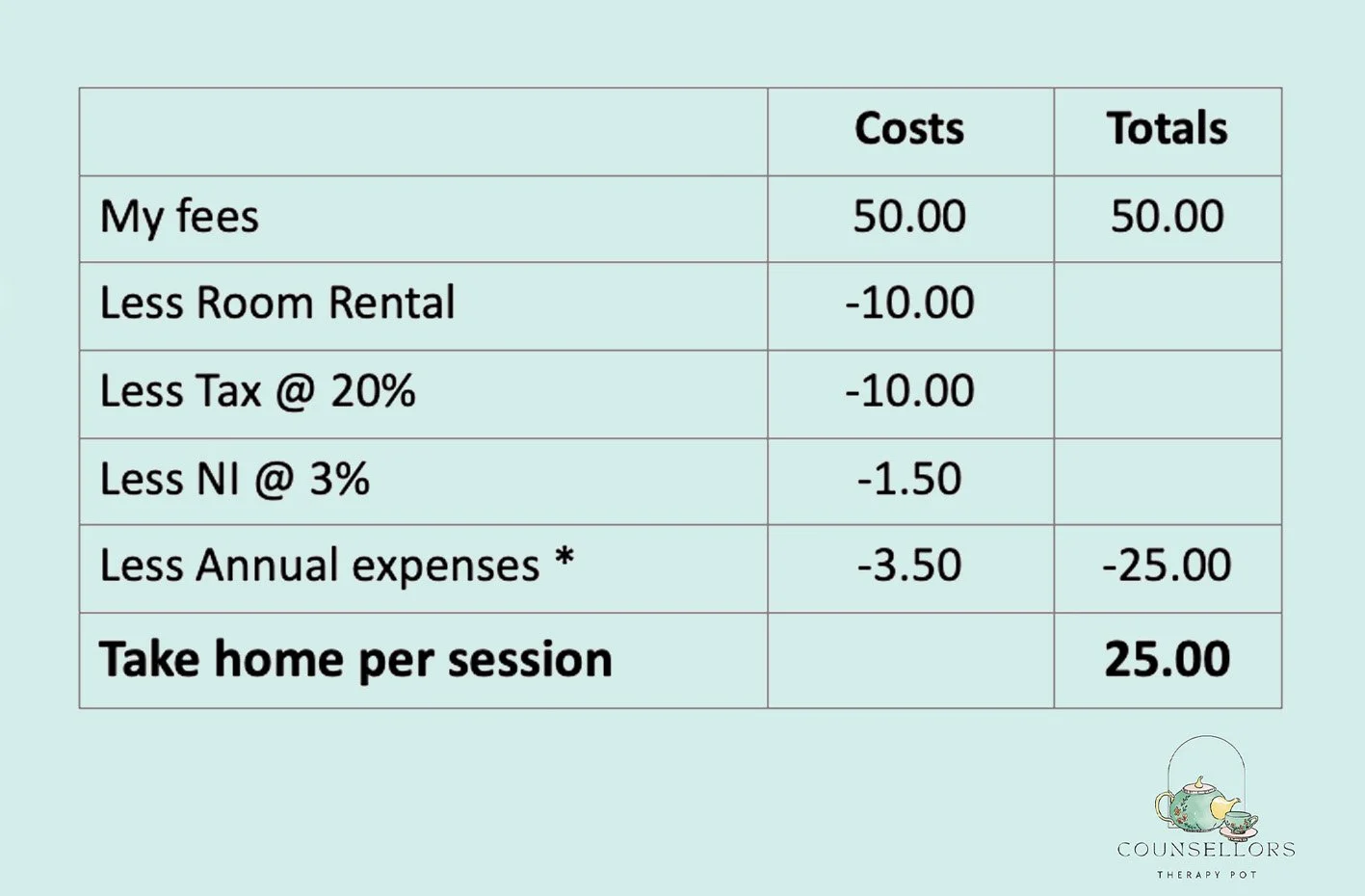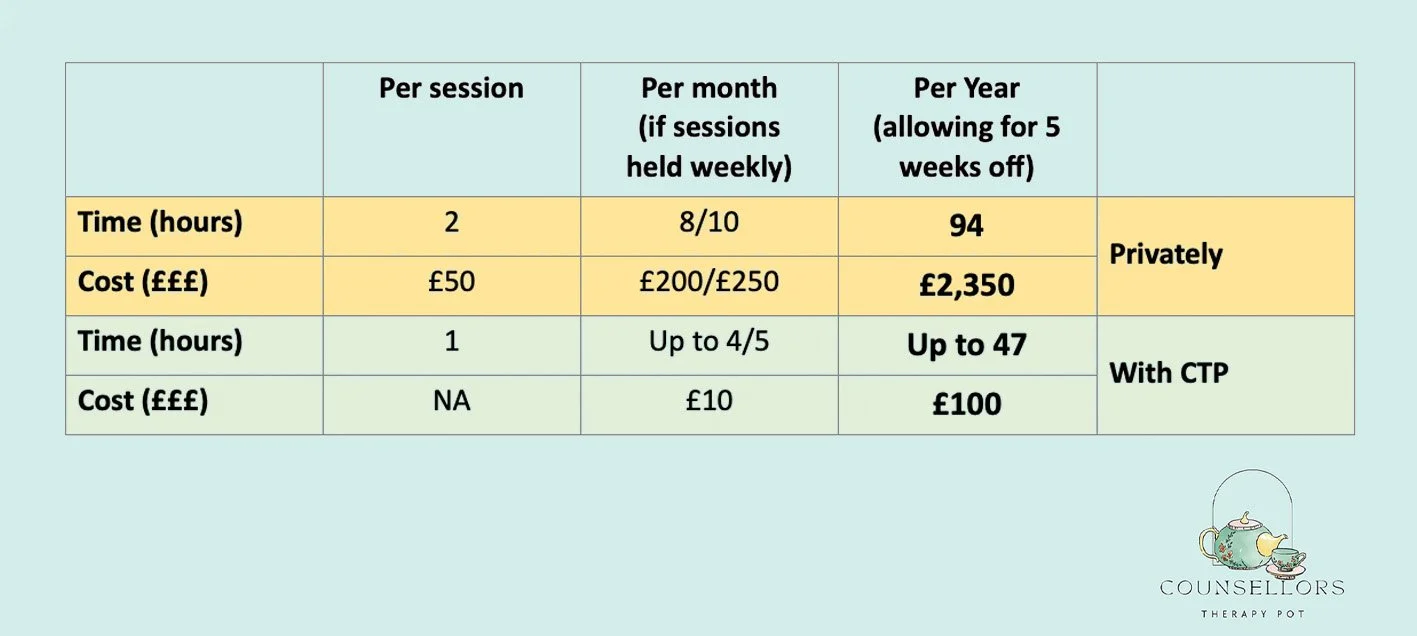Why we do what we do
The Counsellors Therapy Pot started over a pot of tea and homemade cake in a community hub café full of new parents, pottering toddlers and sleeping dogs. Each time we met, ostensibly for a quick afternoon catch up, the café would close around us.
There is a very clear divide in life between before and after becoming a counsellor, at least there was for us. We met in the before times, working in the same office, sharing a bus route. Beth was years deep into her counselling training, while I was plodding through my Undergrad. In Beth’s final year, I promised to write (and possibly submit) her resignation in support of her new path. I was only half joking.
Life moves on, lockdown happened and for a few years there, life was weird. In this space, I started my Postgrad counselling training because why not. Once I qualified, Beth and I reconnected and compared notes. Beth’s private practice had taken off and she was working from home, seeing clients both online and eventually, in person. I found a place within a very busy higher education counselling service. Our experiences entering the therapeutic world were very different.
We agreed to meet one afternoon a week for peer support, socialisation and general ‘putting the world to rights’. We started with Artist’s Way by Julia Cameron, a 12-week course to unblock creativity and get back in touch with your authentic self. Months passed, our conversations continued, with the course giving us the openings to deeper insights. Approaching Christmas in 2023, finances were tight and budgets were tiny. Our discussion centred around how expensive it is both to train and then practice in this industry. How our own therapy is a professional requirement but we cannot swap skills. Several pots of tea were involved in this discussion.
Surrounded by infants and the adjacent maternity clinic, we were reminded of babysitting clubs where parents would provide and receive babysitting time indirectly but within the community. Could we translate this? Surely someone has already thought of it and if they had, how have we not heard of it?
With a rough calculation, we worked out that if I charge £50 per session, and my counsellor charges me £50 per session, allowing for tax, NI, room rental etc., it costs me at least two hours of client work to pay for one personal session. Once I expanded this calculation across a 40-week year, I ordered more cake. It’s cheaper than therapy.
In private practice, our career can be quite isolated and isolating. We meet with clients but networking is difficult, community is elsewhere. When we talk to people all day, and actively listen to people all day, the last thing we want to do is socialise. Our social batteries get used up, financial pressures build up. Which made us realise we couldn’t be the only ones feeling this way. There are so many counsellor support groups out there, supporting our businesses, growing our modalities. We’re not aiming to replace these but to work alongside, supporting in a practical way that impacts our bottom line, plugging a gap for any counsellor who needs it.
Much tea and cake later, with the Christmas break to mull it over, we decided to give it a shot and see what happens. The Counsellors Therapy Pot is not right for every counsellor, but we believe that there are enough of us out there to make this worthwhile. Our aim is to connect people with people and not interfere with the therapeutic relationship. Over time, our aim is to build connections within our community.
Our full name is Counsellors Therapy Pot, to differentiate between the types of therapy (massage, aroma, speech), which quickly became T-Pot.
So welcome to our Teapot. Pull up a chair and pour yourself a cuppa.
* Annual expenses have been estimated using the wonderful calculator created by Josephinehughes.com
Book recommendations:



